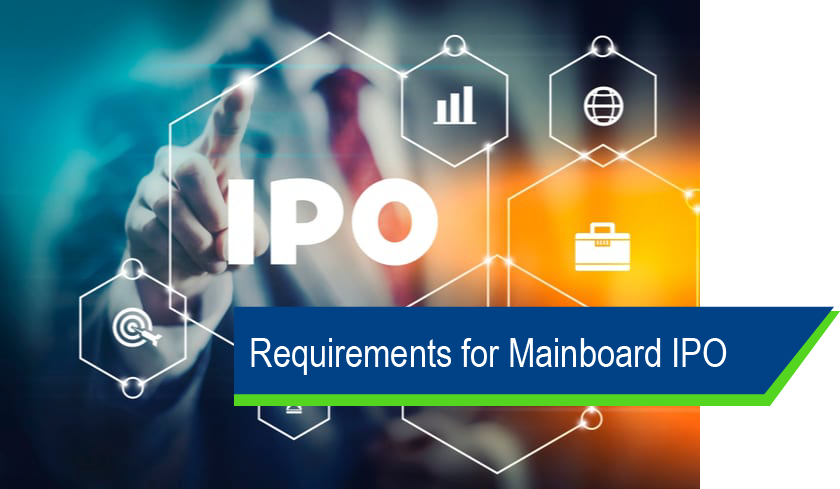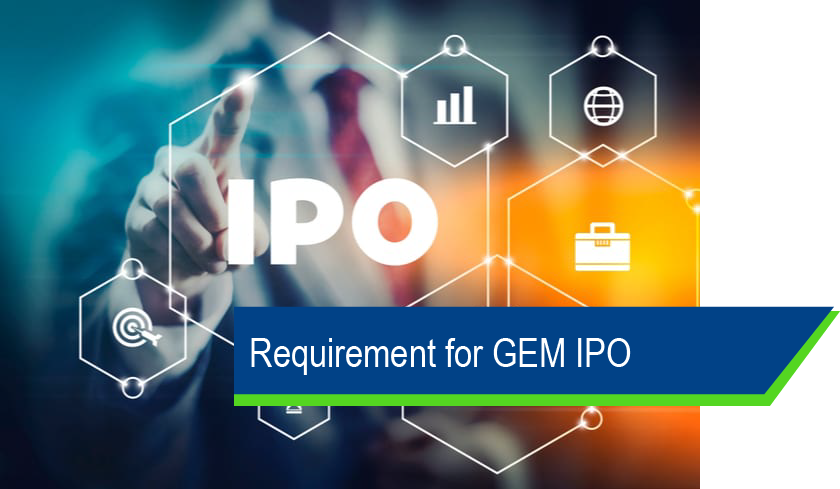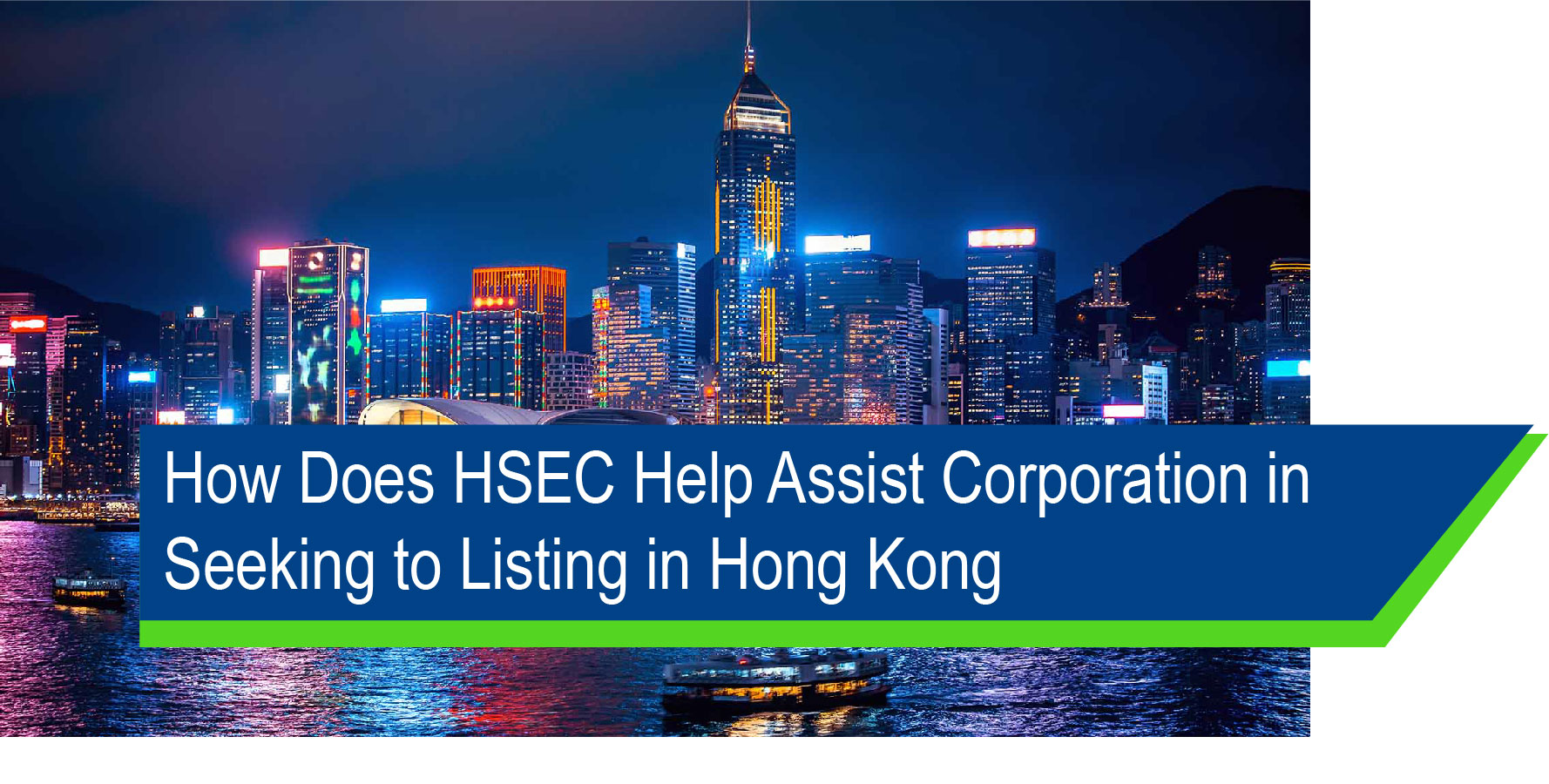HKEx is
HKEx is one of the stock exchanges with the largest market capitalisation and active trading in the world. It is an ideal platform for enterprises to go public for raising capital. Through listing in Hong Kong, an enterprise will attain a desirable valuation and enhance its corporate governance. In addition, relatively shorter time to obtain listing approval or approval for follow-up finance can help an enterprise to rapidly expand into oversea markets.
To attract emerging industry companies and enhance Hong Kong’s competitiveness, the Stock Exchange of Hong Kong Limited (HKEx) announced the listing reform on 15 December 2017, revised the listing rules for GEM and Main Board, and allowed biotech companies that are not yet profitable/pre-revenue and the emerging and innovative industry companies with different voting rights structures to be listed on the Main Board after making additional disclosures and formulating safeguard measures.
Advantages of IPO in Hong Kong
Capital Market Environment
- Hong Kong is an international financial and information centre, with standard and mature capital market
- It has established laws and regulations, including Securities and Futures Ordinance, IPO Rules, Codes on Acquisitions and Mergers and others
- It does not levy on dividends and profits of any placing, Institutional investors and the public proactively participate in the active market
- It has no foreign exchange control, and capital is freely circulating
Corporate Image after IPO
- Company will be noted by the commercial and financial community after IPO, which will enhance international image of the company to procure confidence from suppliers, distributors and other cooperators more easily, as well as helping to expand global markets, and expand business to a higher level
- IPO will enhance the product brand popularity and reputation of the company
- The company can build up a global sense and international prospect, and to absorb first-class talents through international commercial platform
IPO Procedure and Support
- IPO procedure is highly transparent
- A professional listing intermediary can achieve optimal IPO plan
Follow-up Finance Capacity
- Company can have global capital support since global leading financial institutions are based in Hong Kong or setting up branches in Hong Kong
- It can have strong refinance capacity after IPO
- Hong Kong is a good circulation market
Requirements for Mainboard IPO
- 3-Year aggregate profit ≥ HK$50m (The profit for the first two years is HK$30 million, and the profit for the first year is HK$20 million) *
- Market cap ≥ HK$500m
* Note: The profit requirement will be increased by 60% to HKD80 million (HKD35 million in the most recent year and HKD45 million in aggregate in the first 2 years), and effective for listing applications submitted on or after 1 January 2022.
- Latest year revenue ≥ HK$500m
- Market cap ≥ HK$4bn
- Latest year revenue ≥ HK$500m
- Market cap ≥ HK$2bn
- Positive 3-year aggregate operating cash flow (OCF) ≥ HK$100m
- Management has remained unchanged for the recent 3 years
- At least 3 independent non-executive directors who must account for at least one third of the board members
- A business record of not less than 3 fiscal years
- A controlling shareholder or director may conduct business in competition with the company but the business must be fully disclosed
- At least 300 shareholders
- The company cannot choose to be listed purely as a placing
- Open subscriptions must be fully underwritten
- No new shares can be issued within six months after the company’s listing
- It is requested to submit financial reports every six months
- Public float at the time of listing is not less than HK$125 million
- The minimum public float is not less than 25%
If the market cap at the time of listing exceeds HK$10 billion, the minimum public float can be reduced to 15%
- The shares will not be sold within the 6 months after the listed file is disclosed
- Shares can be sold in the next 6 months but control must be retained
- Ownership and control remain unchanged for the recent year

Requirement for GEM IPO

Companies intending to list on GEM Hong Kong must submit listing application to HKEx. The listing process and rules are set out in the “GEM Listing Rules”.
- No requirements for profitability
- Positive 2-year aggregate operating cash flow (OCF) ≥ HK$30m
- Market cap ≥ HK$150m
- Management has remained unchanged for the recent 2 years
- At least 3 independent non-executive directors who must account for at least one third of the board members
- The company must have a business record of not less than 2 fiscal years
- A controlling shareholder or director may conduct business in competition with the company but the business must be fully disclosed
- At least 100 shareholders
- The percentage of three public shareholders who hold the highest shareholdings shall not be more than 50% of the securities held by the public at the time of listing
- The company cannot choose to be listed purely as a placing
- No mandatory underwriting rules
- No new shares can be issued within six months after the company’s listing
- It is requested to submit financial reports every season
- The minimum public float is not less than 25%
- If the market cap at the time of listing exceeds HK$10 billion, the minimum public float can be reduced to 15%
- The shares will not be sold within the first year after the listed file is disclosed
- Shares can be sold in the next year but control must be retained
- Ownership and control remain unchanged for the recent year
A Listing Regime for Companies from Emerging and Innovative Sectors
Hong Kong is the world’s top market for initial public offerings. To raise Hong Kong’s competitiveness as a financial centre, the Stock Exchange of Hong Kong Ltd. (the “Exchange” or “SEHK”) introduces three chapters to the Main Board Listing Rules, to allow the listing of companies that have weighted voting right (WVR) structures and Biotech Companies which do not meet the Financial Eligibility Tests of the Main Board, and create a new concessionary secondary listing route for Greater China and international companies seeking a secondary listing in Hong Kong. Relevant contents include:
Listing Requirements
- The market capitalisation of a company at the time of listing must satisfy one of the following:
-
- at least HK$40 billion; or
- at least HK$10 billion and revenue of at least HK$1 billion for the most recent audited financial year.
- Non-WVR shareholders must be entitled to cast at least 10% of the eligible votes.
- The voting power of any beneficiaries of weighted voting rights must not exceed ten times the voting power of ordinary shares, on any resolution tabled at the issuer’s general meetings.
- At listing, any beneficiaries of weighted voting rights must be members of the applicant’s board of directors.
- The beneficiaries of weighted voting rights must beneficially own collectively at least 10% of the substantial equity. The Exchange may be prepared to accept a lower minimum shareholding percentage if the lower substantial equity still represents a very large amount in absolute dollar terms (for example if the applicant has an expected market capitalisation of over HK$80 billion).
- The company must include the warning “A company controlled through weighted voting rights” on the front page of all listing documents, periodic financial reports, circulars, notifications and announcements and describe the WVR structure, the issuer’s rationale for having it and the associated risks prominently in its listing documents and periodic financial reports.
- The listed equity securities must have a stock name that ends with the marker “W”.
- The weighted voting rights attached to a beneficiary’s shares must cease upon transfer to another person of the beneficial ownership of, or economic interest in, those shares or the control over the voting rights attached to them (through voting proxies or otherwise).
- Any conversion of shares with weighted voting rights into ordinary shares must occur on a one-to-one ratio.
- Non-WVR shareholders have the right to convene an extraordinary general meeting and add resolutions to the meeting agenda. The minimum stake required to do so must not be higher than 10% of the voting rights on a one vote per share basis in the share capital of the listed issuer.
- A Biotech Company must:
-
- demonstrate to the Exchange’s satisfaction that it is both eligible and suitable for listing as a Biotech Company;
- have an initial market capitalisation at the time of listing of at least HK$1.5 billion;
- have been in operation in its current line of business for at least two financial years prior to listing under substantially the same management; and
- ensure that it has available sufficient working capital to cover at least 125% of the company’s costs for at least 12 months from the date of publication of its listing document (after taking into account the proceeds of the applicant’s initial listing).
- The company must disclose in its listing documents its strategic objectives, the details of each Core Product, details of its research and development experience, estimate of cash operating costs related to Core Products, specific risks, general risks and dependencies.
- The company must, in respect of each Core Product, prominently disclose to investors a warning that the relevant Core Product may not ultimately be successfully developed and marketed.
- The company must ensure that a portion of the total number of its issued shares with a market capitalisation of at least HK$375 million is held by the public. Any shares allocated to a Cornerstone Investor and any shares subscribed by existing shareholders of the company shall not be considered as held by the public.
- The company must have previously received meaningful third party investment from at least one Sophisticated Investor at least six months before the date of the proposed listing (which must remain at IPO).
- The company must provide ongoing disclosures regarding its R&D activities in its interim and annual reports.
- The listed equity securities must have a stock name that ends with the marker “B”.
Listing Requirements
- The company must demonstrate to the Exchange that it is both eligible and suitable for listing.
- The company must have a track record of good regulatory compliance of at least two full financial years on a Qualifying Exchange (NYSE, NASDAQ or the “premium listing” segment of the LSE’s Main Market).
- A Non-Greater China Issuer without a WVR structure must have an expected market capitalisation at the time of its secondary listing of at least HK$10 billion.
- A secondary listing applicant with a WVR structure and/or which is a Greater China Issuer must satisfy one of the following:
-
- a market capitalisation of at least HK$40 billion at the time of listing; or
- a market capitalisation of at least HK$10 billion at the time of listing and revenue of at least HK$1 billion for the most recent audited financial year.
- The company may make a listing application on a confidential basis.
- The company must prominently disclose in its listing documents any provisions in its constitutional documents concerning its governance that are unusual compared with normal practices in Hong Kong and are specific to the company.
- The issuer must hold a general meeting each year as its annual general meeting.
- Members holding a minority stake in the issuer’s total number of issued shares are allowed to convene an extraordinary general meeting and add resolutions to a meeting agenda. The minimum stake required to do so must not be higher than 10% of the voting rights in the share capital of the issuer.
- HKSCC must be entitled to appoint proxies or corporate representatives to attend the issuer’s general meetings and creditors meetings and those proxies/corporate representatives must enjoy rights comparable to the rights of other shareholders.

Main Procedures of IPO

The company decides IPO
Based on the future development strategies, the board of directors and the shareholders’ meeting are convened to make the decision to list the company in Hong Kong; they select and hire the main intermediary agency and appoint sponsors and other professional advisers.
The First Coordination Meeting
The company and the sponsors, underwriters, accountants, and appraisers hold the first listing meeting and work with all parties until the company is listed.
Due diligence
The underwriter, accountant, and solicitor, will carry out careful investigation of the business, financial condition, future prospects, major risk factors, legal issues and others, to ensure correct procedures and that nothing is omitted in content of all public documents.
Reorganisation
The underwriter, accountant, and solicitor, will provide professional advice to the company, to reorganize the business, structure and financial condition of the company in consideration of direction of future development, to make the company a new entity conforming to IPO rules, to attract investors.
File making
The underwriter, accountant, and solicitor, will write all documents necessary for all kinds of IPO, including prospectus, accountants report and legal opinion.
Submitting Form A1
The underwriter assists the company in submitting preliminary application documents for listing to the Listing Department of the Stock Exchange. If the A1 data is substantially complete, the Listing Department will confirm the receipt and publish the Chinese and English versions of the application on the website.
Accumulative tendering
To determine a price range according to the market condition in issuing, then to invite investors to show their subscription intent in advance within the price range, and finally to determine final issue price by final subscription results.
Placing and public offering
The issue of shares is generally divided into two parts: placing and public offering in Hong Kong IPO. Placing is directional sales to global funds and other institutional investors; and public offering is sales to public.
Pricing and IPO
To seek a desirable equilibrium point according to accumulative subscription order results and market condition in issuing, to determine final issue price of shares. A simple and solemn IPO ceremony will be held in the Trading Hall of the Exchange, Generally on the day of IPO.
The Listing Department reviews the application
The Listing Department will then conduct a detailed review of A1 data to assess whether the company is eligible for listing, whether it is suitable for listing, whether the business is sustainable, whether the company complies with the rules and makes full disclosures.
Answer related questions and submit other listing documents
The Listing Department will issue the first round of comments within 10 working days upon receipt of the application and request the company to answer the questions. Underwriters and intermediaries assist in the completion of this assignment.
Hearing
The Listing Committee reviews the new listing application and determines whether the applicant is suitable for an IPO.
Analyst’s study report
It is generally written by an industrial analyst working for the underwriter, and the industrial analyst will prepare the report to be recommended to investors and fund managers through visits to top management of the company for understanding the business, financial and other conditions of the company, which work is completely independent of the due diligence of the underwriter, and generally prepared after submission of Form A1 and published before road show.
Road show
The road show recommendation organized by the underwriter for the Company is generally in two forms: lunch promotion meeting and one-on-one meeting. Generally, the underwriter will accompany the company top management to visit Hong Kong, Singapore, Tokyo and occidental major cities.
How Does HSEC Help Assist Corporation in Seeking to Listing in Hong Kong
IPO is an effective channel for enterprises to raise funds for sustainable development, and a unique opportunity for enterprises to standardize their management and enhance the brand reputation. As listing is a professional and complex business, when an enterprise decided to go public in Hong Kong, it must observe the Listing Rules and IPO procedures of the Hong Kong Stock Exchange. A professional who is familiar with the Hong Kong market and the listing procedures can help the overall planning. Based in Hong Kong, HSEC will guide you through the entire IPO process.
- Assessing the eligibility of the company to be listed in Hong Kong
- Preparing a feasibility report for listing
- Formulating a development direction of the company for the purposes of listing
- Examining the accounting system and accounting record of the company and giving advices for improvements
- Devising a tax saving plan for the company and individuals (shareholders)
- Designing a restructuring plan
- Recommending venture capital or private equity fund for the development of the company
- Providing audit services in accordance with the requirements of information disclosure
- Providing timely update on accounting standards, the Listing Rules and other regulatory requirements and make recommendation
- Providing professional advice on subsequent mergers and acquisitions
- Assisting clients in the issue of bonds/convertible bonds/issue of new shares/top-up issue
- Assisting in choosing the best time for listing
- Assisting in the selection of appropriate intermediaries
- Coordinating on the company behalf the intermediary teams to complete their work as scheduled
- Assisting the sponsors in the performance of due diligence
- Helping answer enquiries from the Stock Exchange
- Helping seek capital at the Pre-IPO stage and help increase market awareness on the company

